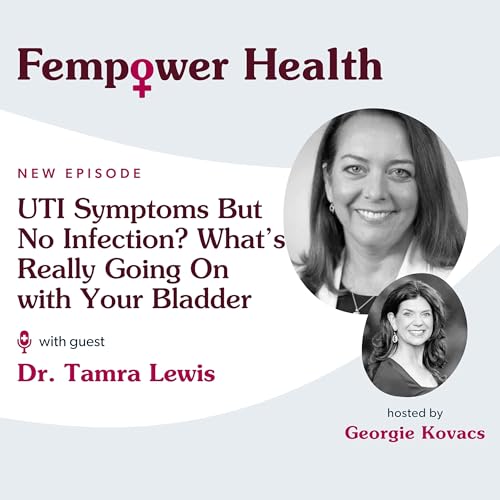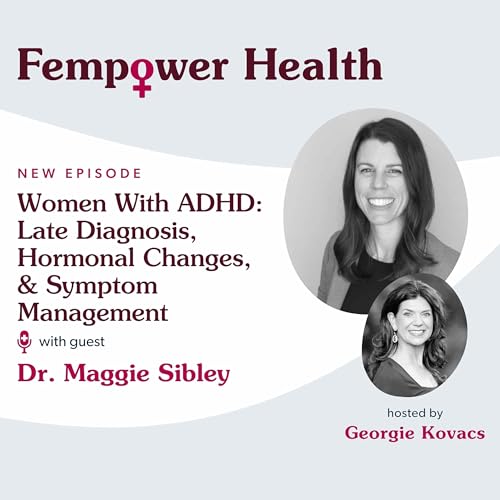Episode SummaryThe FDA held a rare public hearing to reconsider the safety labels on vaginal estrogen—a pivotal moment for menopause care.
In this episode, Dr. James Simon, a leading menopause specialist and clinical researcher, joins Georgie Kovacs to unpack what the hearing revealed, why the current labeling may do more harm than good, and what it means for millions of women experiencing genitourinary syndrome of menopause (GSM), recurrent UTIs, painful sex, and incontinence.
Together, they explore how outdated warnings, lack of education, and systemic biases continue to shape women’s access to treatment—and what both women and clinicians need to know as change finally takes shape.
Discussion Points- Why is the FDA reconsidering the vaginal estrogen warning label now?
- What does genitourinary syndrome of menopause (GSM) actually mean—and how common is it?
- How do current black box warnings limit women’s access to safe and effective therapies?
- What’s the real risk of vaginal estrogen and breast cancer—and what does the evidence say?
- How can updated labeling improve care for UTIs, painful sex, and incontinence?
- What steps can clinicians take to confidently prescribe vaginal estrogen?
- What role does the media and misinformation play in perpetuating fear around menopause care?
- How can women advocate for themselves if their doctor is hesitant to prescribe?
- What’s next for the FDA—and how could this hearing reshape menopause treatment in the U.S.?
🎧 Loved the episode? Here's how you can take action:
1. Help others discover Fempower Health:
Leave a quick review on Apple or Spotify. It’s the easiest way to support our mission and amplify women’s health voices.
2. Stay connected:
Follow us on LinkedIn, Instagram and TikTok, YouTube for real-time updates, expert insights, and relatable conversations.
Or join our newsletter to get curated women's health content—on your terms, in your inbox.
**Top 50 Health Podcast of 2024**
About Dr. James Simon
Dr. James A. Simon is a board-certified Ob/Gyn, and reproductive endocrinologist. He is Clinical Professor of Obstetrics and Gynecology and Reproductive Endocrinology and Infertility at The George Washington University School of Medicine in Washington, DC. Dr. Simon also holds certifications as an AASECT-Certified Sexuality Counsellor, an ISCD-Certified Clinical Bone Densitometrist, and a Menopause Society-Certified Menopause Specialist.
He has an active private practice, IntimMedicine Specialists®, in Washington, DC focused on complicated gynecology, sexual medicine for both men and women, and menopause.
Dr. Simon has received...
 Nov 18 202543 m
Nov 18 202543 m 40 m
40 m 43 m
43 m 47 m
47 m Oct 21 202542 m
Oct 21 202542 m 43 m
43 m 1 h
1 h 1 h y 1 m
1 h y 1 m
